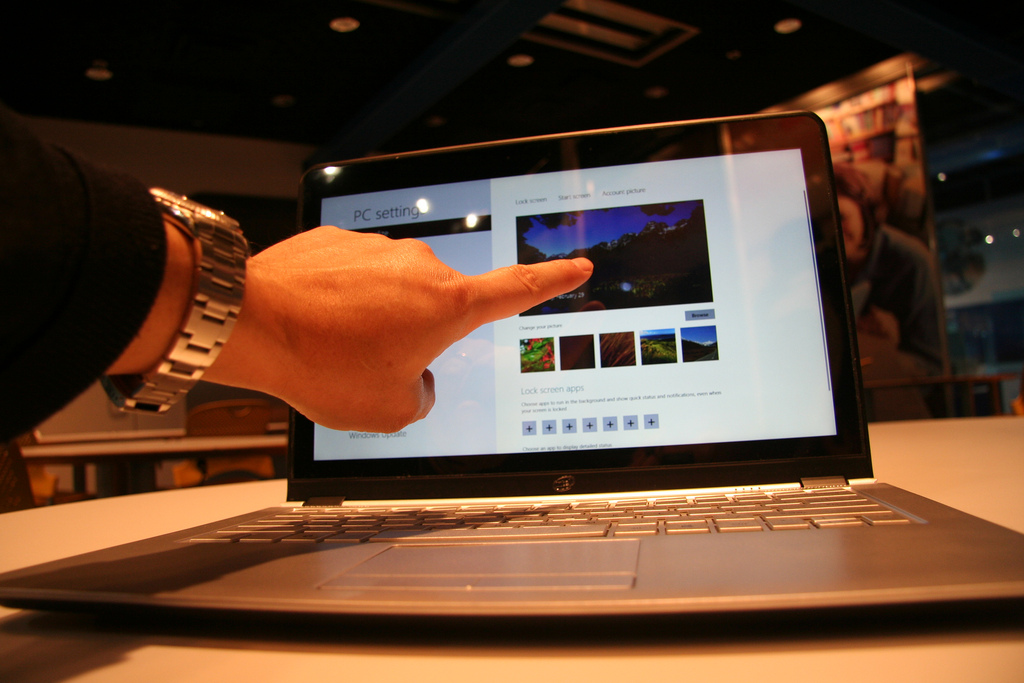Intel Conducts Study to See If You Want Touchscreen Laptops
Intel has recently conducted a study to find out if people really want laptops with touchscreens.
A recent study conducted by Intel is now proving that a majority of people do want touch capability on the laptop. Lately news of the touchscreen tablets has been overflowing the news and for Intel this is not good. Since the release of the Ultrabook, Intel has been pushing its partners to make these thin notebooks.
Now, rather than fight the tablet market, Intel appears to be interested in the touchscreen world by conducting research to decide whether touch capability in a laptop is desirable to the average consumer. Throughout its testing, Intel found that over three quarters of users preferred using the touchscreen when going about everyday tasks such as browsing the web. This seemingly ergonomic nightmare has been called “intuitive” by many of the folks who were included in the testing.
"People told me that touch on the laptop was intuitive, fun, immersive and freed them from the mouse and trackpad, especially when they discovered actions like flicking the screen to scroll up or down and navigate between tasks," said Daria Loi, a user experience manager at Intel.
Loi found that people spent 77 percent of the time using the touchcreen for tasks such as surfing the Web, watching online video, viewing and editing photos and adjusting the laptop's setting.
As well as competing with the tablet, it also seems Intel is bracing itself for the arrival of Windows 8. Windows 8, although compatible with the keyboard and the mouse, has a new focus for the touchscreen.
With Intel not yet ready to tackle ARM in the tablet space, it is likely looking towards touch on Ultrabooks to help fill in the gap.
In an update from the Intel Free Press, we've learned that researcher Daria Loi was misquoted in the original source of this story. “Ninety percent is not a number I have in the study,” she said after the article was published, adding that “many users found touch intuitive, but not 90 percent.” Intel Free Press regrets the error.
Get Tom's Hardware's best news and in-depth reviews, straight to your inbox.
-
lahawzel "using the touchcreen for tasks such as surfing the Web, watching online video, viewing and editing photos and adjusting the laptop's setting."Reply
What. -
friskiest This was of course the response when you put a "tablet-oriented" OS into the laptop form-factor, Windows 8 screams touch me anywhere you look at it after all.Reply
I wouldn't mind a touchscreen (its a lot natural to browse with it) laptop as long as you can install a mouse and keyboard if you ever need it. -
tical2399 As long as I can still plug in a usb mouse and have it work as it always has the the answer is HELL YEA!!!. Also the higher res screen that the guy above me is talking about is cool too. As long as neither of these update increase the price i'm all in.Reply -
aftcomet Watching online video and adjusting a laptop's settings? Seriously? This requires a touchscreen?Reply -
atikkur ..then it only leads to enhanced tablet, after touchscreen added, they will studying again, were keyboard and mice/trackpad necessary to get eliminated. surely,, there is already device for browsing only, daily task only, with touchscreen.. that is tablet.Reply -
JOSHSKORN I want better battery life. Not touch screens. And bigger keyboards, too. And, not Windows 8.Reply

